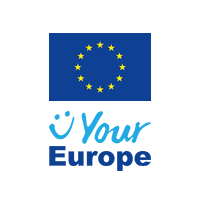Hi everyone, I have searched high and low for insights about these questions and hopefully this is not a redundant query :
I am a US professional and making a career change to become a professional photographer and to live and work in France as a freelancer.
-I am planning to complete a 1 year photography program in France while on a student visa, the program awards an RNCP Level 6 diploma in photography, equivalent to an advanced bachelors/ L3 and not a master degree. (There is not a suitable master degree program for my goals, which would make things less un-straightforward.)
-I would also like 6-12 months to complete intensive language French program so that I am B2/C1 by the time I graduate.
-Finally, I would like to also complete a 5 month non-diploma program that focuses on a specialized area of photography.
-In all this would take around 2.5 years of being in student mode, and I am flexible on how the studies are ordered.
I've spoken with Etudes de France and Campus France and have this visa plan and welcome any input of any kind :
1- Apply for a 1 + year student visa to cover a year of French and the shorter, non diploma photography course
2- Renew the student visa for the one year diploma program. I cannot roll this plus the above all into one longer student visa since I will not have applied to the one year program until I am in France as it would be more than a year out, and they don't take applications that early.
3- Once I finish the diploma program, I would apply for the profession libérale visa. Because the diploma is L3 it is a professional license and I believe that this allows a seamless transition from diploma into the freelance visa. But maybe I am totally off here.
I would very much prefer to not return to the US when transitioning visas between student and entrepreneur/profession libérale visas. Campus France suggests that transitioning directly to the profession libérale visa is possible with this level of diploma because L3 is considered a professional license, but I am not positive.
Is this reasonable ? Do you see any pitfalls ? I've read on this forum that a student visa is a dubious path to residency, and I welcome any insights on that.
Perhaps a long shot, but if I have the accomplishments, could I apply for a talent visa after being on a student visa ? I think I would have to return to the US to apply, but again, I am unsure.
Do you have any other ideas on a visa pathway to residency from being a student ?
Merci mille 🇫🇷
🇫🇷
I am a US professional and making a career change to become a professional photographer and to live and work in France as a freelancer.
-I am planning to complete a 1 year photography program in France while on a student visa, the program awards an RNCP Level 6 diploma in photography, equivalent to an advanced bachelors/ L3 and not a master degree. (There is not a suitable master degree program for my goals, which would make things less un-straightforward.)
-I would also like 6-12 months to complete intensive language French program so that I am B2/C1 by the time I graduate.
-Finally, I would like to also complete a 5 month non-diploma program that focuses on a specialized area of photography.
-In all this would take around 2.5 years of being in student mode, and I am flexible on how the studies are ordered.
I've spoken with Etudes de France and Campus France and have this visa plan and welcome any input of any kind :
1- Apply for a 1 + year student visa to cover a year of French and the shorter, non diploma photography course
2- Renew the student visa for the one year diploma program. I cannot roll this plus the above all into one longer student visa since I will not have applied to the one year program until I am in France as it would be more than a year out, and they don't take applications that early.
3- Once I finish the diploma program, I would apply for the profession libérale visa. Because the diploma is L3 it is a professional license and I believe that this allows a seamless transition from diploma into the freelance visa. But maybe I am totally off here.
I would very much prefer to not return to the US when transitioning visas between student and entrepreneur/profession libérale visas. Campus France suggests that transitioning directly to the profession libérale visa is possible with this level of diploma because L3 is considered a professional license, but I am not positive.
Is this reasonable ? Do you see any pitfalls ? I've read on this forum that a student visa is a dubious path to residency, and I welcome any insights on that.
Perhaps a long shot, but if I have the accomplishments, could I apply for a talent visa after being on a student visa ? I think I would have to return to the US to apply, but again, I am unsure.
Do you have any other ideas on a visa pathway to residency from being a student ?
Merci mille





